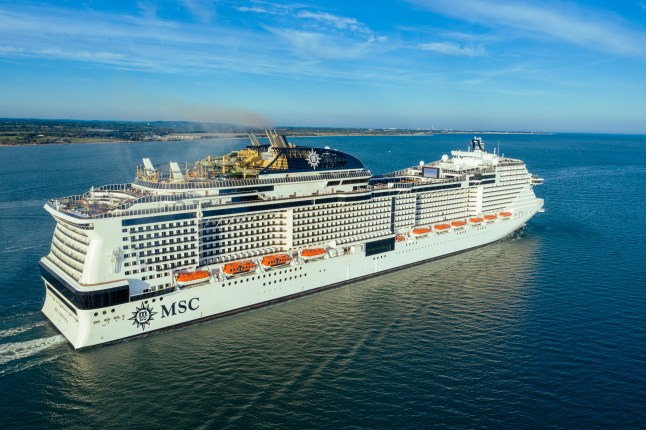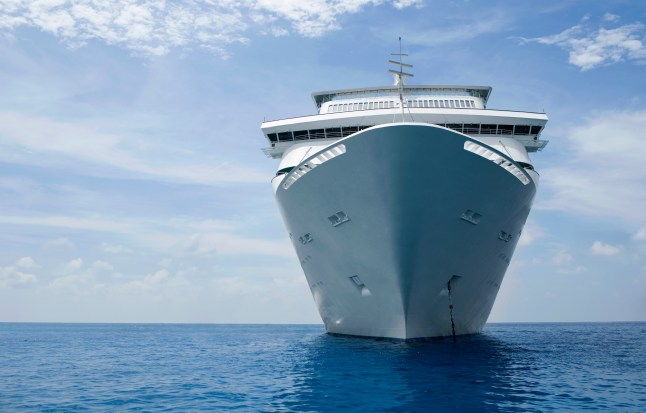
Going on holiday is something everyone looks forward to, and few places are better equipped for having a good time than cruise ships. But as with everything in life, they must also be prepared for the worst.
On Saturday, a passenger died on a cruise ship in British waters. The victim, 60, was on the MSC Virtuosa when it left Southampton on Saturday evening for a two-night cruise to Bruges, Belgium.
An army medic administered CPR, but the man was pronounced dead at the scene, passenger Lynda Hardiman-Pearce said.
A 57-year-old man has been arrested on suspicion of murder.
Deaths like these are rare, but they’re not unheard of. So what actually happens when someone dies at sea? Here’s everything you need to know.
What happens when someone dies on a cruise ship?
Sign up to The Getaway newsletter
Fuel your wanderlust with our curated newsletter of travel deals, guides and inspiration. Sign up here.
When someone dies on a cruise ship, what happens next depends on many different factors, including where the vessel is and cruise liner policy.
Cruise ships are required to have at least one medical professional on board, as well as an examination and intensive care room.
The onboard doctor will pronounce a death after all medical efforts have been exhausted and the body has been examined.
They will inform the people travelling with the passenger, or contact the passenger’s next of kin if they were alone.
Zoe Adjey, Senior Lecturer at the Institute of Tourism and Hospitality at the University of East London, tells Metro that cruise ships have procedures for all passenger health situations, including end-of-life.
‘Staff members receive training to handle these sensitive situations compassionately, including providing emotional support for family members,’ she explains.
‘They’re there to help the family or friends with whatever they need.’
The death is then recorded in the ship’s log and the flag state, meaning the country the ship is registered in.
Dr Asimah, a registered GP working with travel insurance provider Staysure says: ‘From a medical and procedural perspective, accurate records and death certificates are essential for local authorities, enabling the next steps.’
If the death occurred in international waters, is being treated as suspicious, or a crime has been committed, local authorities have jurisdiction. According to the United Nations Convention on the Law of the Sea (UNCLOS), each country has jurisdiction within 12 nautical miles of its shores.
You won’t see it advertised, but most major liners are required to have a morgue. They are typically found on the lowest deck, and usually have space for three to six bodies.

Additionally, some cruise ships will have a chapel or religious area where the last rites can be performed, according to the person’s faith.
The body will need to be stored until the ship docks at the next suitable port.
How will you know if someone has died on board?
Generally, cruise lines will ensure that a death onboard is handled as discreetly as possible.
However, if you hear a crew member say the words ‘Operation Bright Star,’ it means there has been a medical emergency.
If the phrase is ‘Operation Rising Star,’ it’s code for a passenger death.
Who covers the cost when someone dies?
Unfortunately, cruise lines do not cover the cost of a passenger’s death.
Therefore, it’s vital to have travel insurance that covers all eventualities.
Dr Asimah explains why a cruise travel insurance policy is important. The expert says: ‘It can cover the complex and often costly process of repatriation, including coordination with local officials, consulates, and specialist airline providers to return the deceased to the UK with care and dignity.’
How often do people die on cruise ships?
According to the International Journal of Travel Medicine and Global Health, 623 reported deaths were reported at sea between 2000 and 2019.
According to that research, 89% were passenger deaths, while 11% were crew deaths.
The leading causes of passenger deaths were falls overboard or onto lower decks, cardiac incidents, and suicides. For crew deaths, these were suicide, murder and falls.
Carnival Cruise Lines reported the most passenger deaths at 29%. This was followed by Royal Caribbean Cruises at 12%, and Norwegian Cruise Line at 10%.
As for crew, the highest number of deaths was also on Carnival Cruise Line, at 19%, tying with Royal Caribbean Cruises.
MORE: Thousands of train passengers stranded in Spain days after massive blackouts
MORE: Map shows VE Day 2025 parade route through central London
MORE: The common cruise ship passenger mistake that drives crew mad










